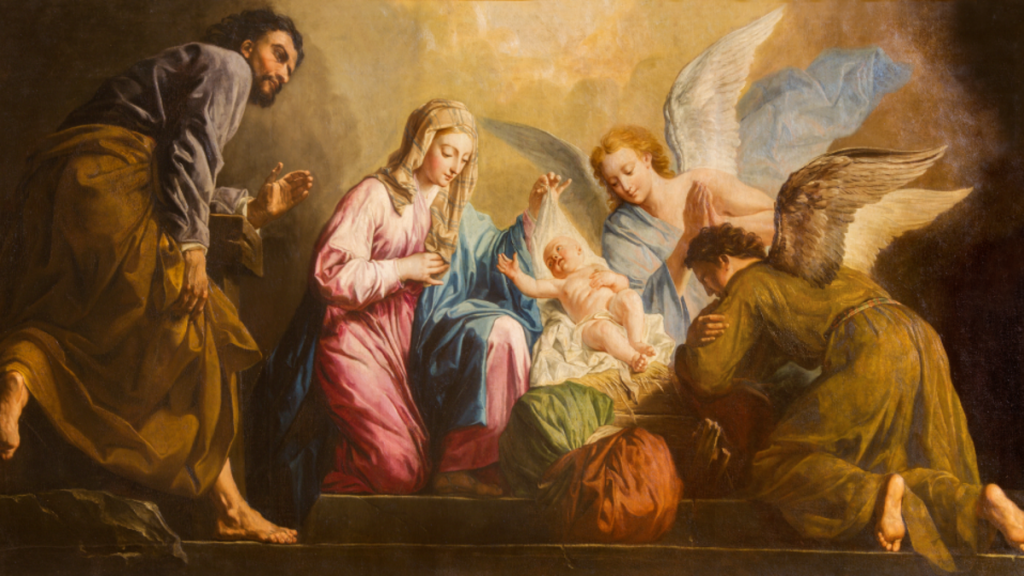[This article originally appeared in SALVO (www.salvomag.com) and is reproduced here with permission. – Ed.]
Most everyone knows the story of the Dr. Seuss classic, How the Grinch Stole Christmas. The grinch, who lives alone in his cave (with his dog, Max) on the side of a mountain, hates the celebration of Christmas that goes on every year down in the village of Whoville. He hates the gift-giving, the feasting, but most of all, he hates the part where the Whos gather in a circle, hold hands, and sing together. So, one year, the Grinch finally makes up his mind on a dastardly deed—he would steal Christmas.
At the end of 2020, COVID-19 is looking a lot like the Grinch, and it is doing its best to steal Christmas. Headlines for weeks now have focused on how families can celebrate Christmas safely, or, conversely, have warned against celebrating it at all. One advice column on SLATE discusses not celebrating Christmas at all, if it makes you too sad to do so without your family. Restrictions in California, Pennsylvania, and other states have made any kind of Christmas gathering difficult or impossible. The Kardashians have canceled their Christmas party. But the latest blow came this week to those living in the UK, where a new strain of coronavirus is leading to a Tier 4 shutdown—which includes restrictions on most family gatherings. “It is with a very heavy heart that I must tell you we cannot proceed with Christmas as planned,” said Prime Minister Boris Johnson. Instead, we must sacrifice the opportunity to see loved ones this year, so that we might have a better chance of seeing them alive next year.
What is one to do? “Cancel Christmas”? Put up a tree, bake some cookies, and eat them with the people in your immediate household while opening your Amazon packages? Ignore all recommendations and proceed as usual? There are good arguments on almost all sides of this issue. The heart bleeds in particular at stories of the elderly in nursing facilities, sequestered away for months now, and dying due to “failure to thrive” caused by depression and isolation. “The cure cannot be worse than the disease,” President Trump has reiterated time and time again. And yet, loosening restrictions in the case of nursing homes, in particular, can be gravely dangerous and lead to huge mortality rates.
But the language of “canceling Christmas” is wrongheaded and deceptive. It may be helpful here to look again at the example of the Grinch. He creeps down the side of his mountain on Christmas Eve, dressed as Santa Claus. He steals the presents, the food, the drink, the decorations, and even manages to stuff all the Christmas trees back up the chimneys and into his overladen sleigh. The Grinch then hauls the whole kit and caboodle back up the mountain, where he plans to launch them over a cliff. But he pauses for a minute, gleefully listening for the Whos to start “boo-hooing.”
But instead, he hears . . . SINGING! The poem continues: “He hadn’t stopped Christmas from coming! It came! / Somehow or other, it came just the same!”
Without presents, without food, without all the usual trappings, Christmas came.
For the Christian, Christmas cannot be “canceled.” You may choose not to put up a tree, you may choose not to eat cookies, you may even not be able to attend a Christmas worship service with your Church family, but it is impossible to “cancel” the church calendar event that is Christmas, the celebration of the birth of Christ, the Incarnation—the moment when God became Man to crush sin and the devil that we might all be saved. Nor should Christian want to “cancel Christmas” in that sense, for that would be very much missing the point. Certainly, it is good and natural to want to gather with loved ones and wait for the Christ Child together. People are not meant to be alone—even less so in times like this, times of economic fragility, and illness. And to adore Christ together, as a family of God, is what He Himself wants for us. But in times when we can’t, no media outlet, political pronouncement, or personal desire can cancel Christmas.
As Dr. Seuss wrote in the closing lines of How the Grinch Stole Christmas, “Christmas Day will always be / Just as long as we have we.”
Or perhaps, better put, “O come, o come ye to Bethlehem / O Come and behold Him, born the King of Angels.”
O come, let us adore Him, no matter whether we gather with two people, ten, or none. Let us adore Him together, whether in the flesh or not. Let us celebrate the miracle of the Incarnation, and the continued and ever-present mercies of Our Lord.
